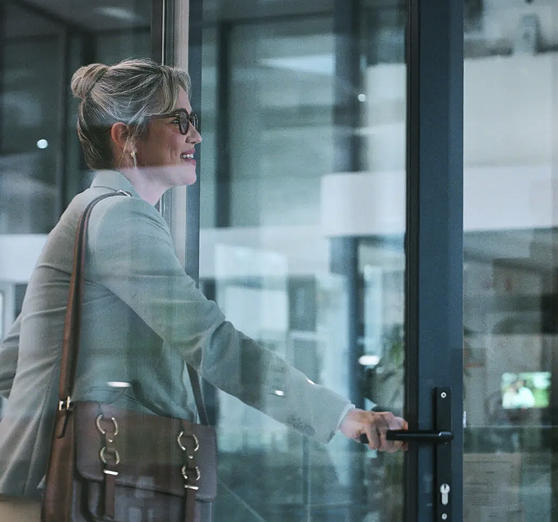Last week, the Department of State (State Department) announced three updates introducing new U.S. visa restrictions primarily impacting students and exchange visitors applying for F, J, and M visas. These changes particularly affect Chinese applicants and extend to any nonimmigrant visa applicant associated with Harvard University.
Overview of the 2025 U.S. Visa Restrictions
- On May 27, 2025, Secretary of State Marco Rubio directed consular sections to cease scheduling student visa appointments for student or exchange visitors (F, M, and J) until the State Department can enhance its social media screening and vetting procedures. Moving forward, consular officers will comprehensively screen every visa applicant “for potential security and non-security related ineligibilities.” Certain visa applicants will be referred to their Fraud Prevention Unit (FPU) for a mandatory social media check pursuant to Executive Orders 14161 and 14188, “Protecting the United States from Foreign Terrorists and Other National Security and Public Safety Threats” and “Additional Measures to Combat Anti-Semitism.”
- On May 28, 2025, Secretary Rubio announced the State Department would “work with the Department of Homeland Security to aggressively revoke visas for Chinese students, including those with connections to the Chinese Communist Party or studying in critical fields.” While “critical fields” were not defined, it is anticipated to impact Chinese students in research-intensive or cutting-edge fields, such as engineering and aerospace. Additional screening criteria will be developed for all future visa applicants from the People’s Republic of China and Hong Kong. No further instructions have been issued to consular officers yet, and the timeline is unclear.
- On May 30, 2025, Secretary Rubio issued a cable announcing additional vetting of any nonimmigrant visa applicant seeking to travel to Harvard for any purpose, which includes not just students, but also faculty, employees, contractors, speakers, and tourists, due to concerns about campus violence and anti-Semitism. Consular officers may consider applicants as lacking credibility if they are hesitant to provide the information requested or refuse to adjust their social media settings. Such instances could lead to an FPU referral. The FPU will review not only the applicant’s social media and information submitted in the DS-160, but also the applicant’s general online presence, looking for inconsistencies to support a determination showing a lack of credibility.
Each of these State Department directives is rooted in this presidential administration’s push for expanded screening and social media vetting for all applicants. As these procedures are implemented, processing times are expected to increase as consulates will need more time and resources to adjudicate applications. Visa appointment availability is expected to decrease, as is the issuance of visas for F, M, and J applicants. Chinese nationals seeking student visas and any individuals seeking to visit Harvard University will be particularly affected.
What Visa Applicants Should Consider
If you are an F, M, or J visa applicant with a visa appointment scheduled, consular officers are permitted to continue processing the visa application. However, despite summer being the prime season for student visa applications, no new appointments will be scheduled until further guidance is issued—with limited exceptions from the State Department’s headquarters Visa Office.
F, M, or J student or exchange visitors who are unable to obtain a visa or an appointment before their programs begin may need to delay entry into the United States. The State Department has indicated during a recent Q&A that visa applicants should still submit a completed Form DS-160, pay the visa fee, and monitor the appointment booking system as appointments may become available at different consulates at varying times, “sooner rather than later.”
Alternatively, if you plan to enter the United States on a different type of visa (such as a B-2 visitor), then file a change of status to F, M, or J, be aware that USCIS’ current processing times for the Form I-539 is 3 to 8 months. While premium processing service is available, a timely approval is not guaranteed. Please note that USCIS requires the change of status approval before beginning your educational program.
However, if you are in the United States in F-1, M-1, or J-1 or another nonimmigrant status in the United States and associated with Harvard University, we recommend you seek immigration counsel before departing the United States. These State Department actions are likely to make obtaining visas difficult and delay entry into the United States. Once a consular officer refers an application for administrative processing or the fraud unit, it is quite difficult to address through limited inquiry mechanisms at the State Department.
How Should Universities, Health Systems, and Employers Support Colleagues
Organizations enrolling or hosting F-1, J-1, and M-1 visa holders, as well as Chinese national students and others associated with Harvard University, should expect delays or cancellations of the arrival of new students and exchange visitors expected to begin programs in the fall of 2025 and plan accordingly. Institutions may want to consider advising students to delay the start of their programs until January 2026. This could prevent disenrollment, transfers to schools under less scrutiny, or abandoning their U.S. academic career altogether.
Similarly, employers hiring graduates with summer and fall start dates should confirm whether their new hires have departed the United States since graduation and have valid visas for reentry. If not, their start dates may be delayed—potentially indefinitely—until an appointment is secured and a visa is issued.
For those already in the United States, institutions may want to recommend against international travel for F, J, and M visa holders at this time. Travel risk will vary for citizens of different nationalities, especially with impending additional travel restrictions the Trump Administration is considering. Institutions should outline the potential consequences of international travel at this time, encouraging those who are considering leaving to seek immigration counsel for guidance prior to departing.
How We Can Help If you need support in navigating the new U.S. visa restrictions, particularly risks associated with foreign travel, visa appointment scheduling, or visa issuance expectations in the current environment, we encourage you to schedule a consultation with an immigration attorney here at KILP. We also have deep experience in advising institutional clients on their immigration policies and guidance for their sponsored students and workforce. Please reach out to one of our accomplished attorneys to discuss.
The material contained in this alert does not constitute direct legal advice and is for informational purposes only. An attorney-client relationship is not presumed or intended by receipt or review of this presentation. The information provided should never replace informed counsel when specific immigration-related guidance is needed.
© 2025 Klasko Immigration Law Partners, LLP. All rights reserved. Information may not be reproduced, displayed, modified, or distributed without the express prior written permission of Klasko Immigration Law Partners, LLP. For permission, contact info@klaskolaw.com.



